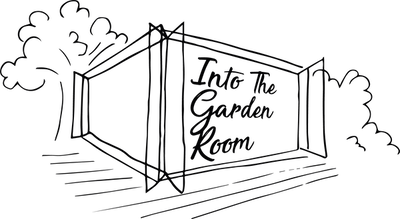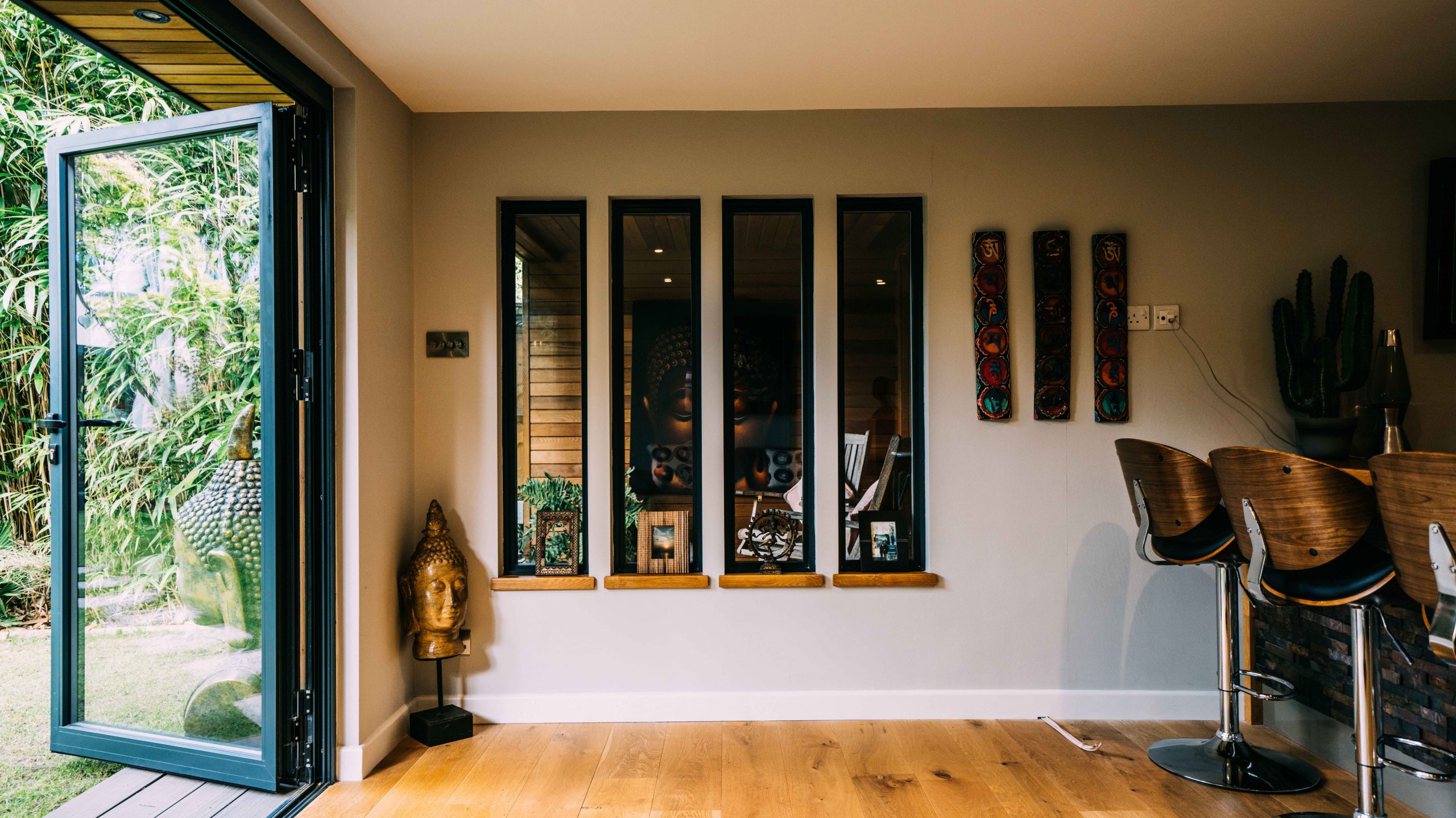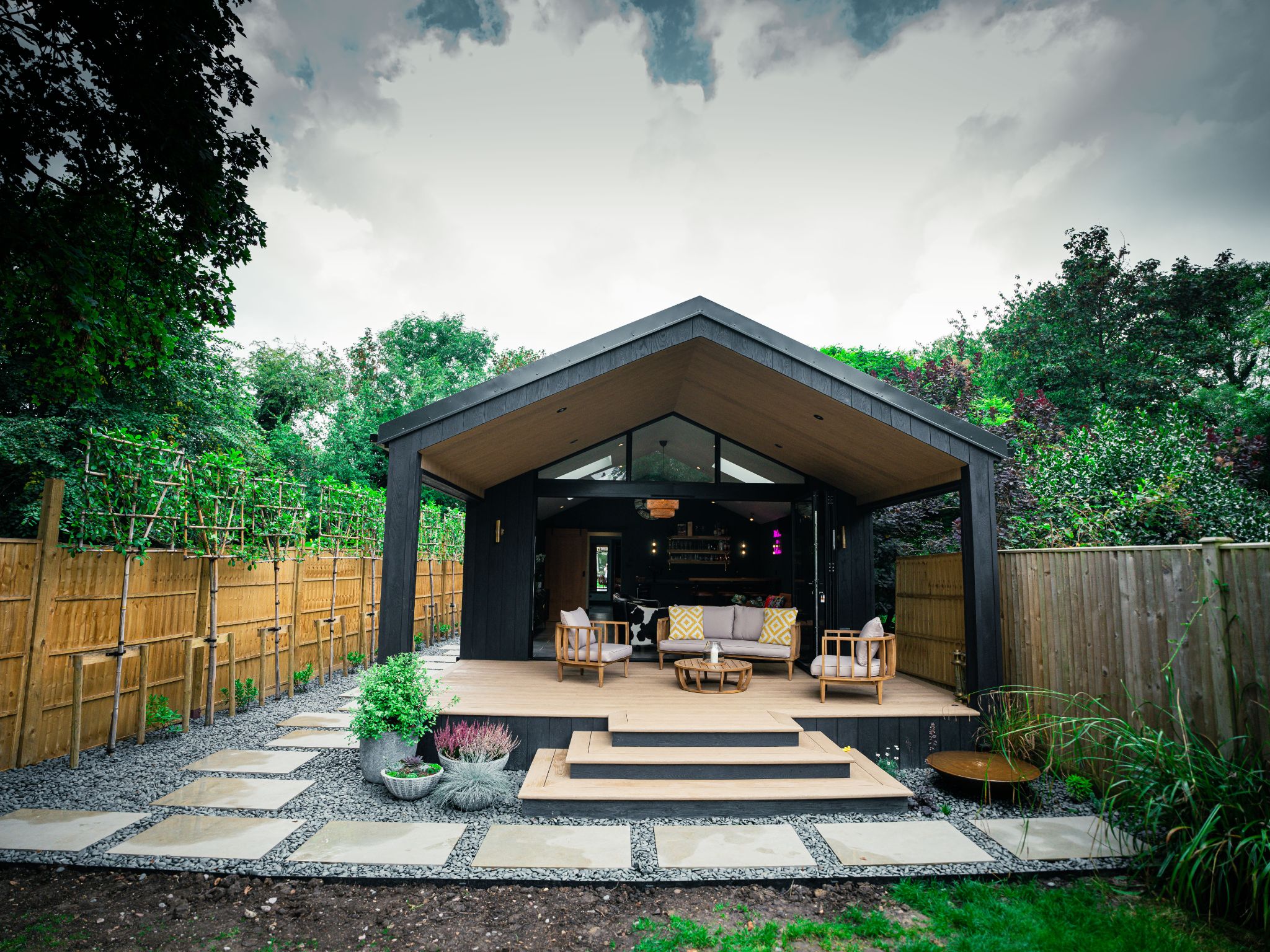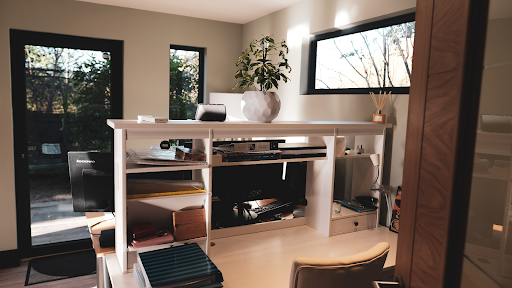
Guest blog by Tania Diggory, Founder & Director of Calmer
Kicking off our first blog in 2022 is Tania Diggory, Founder & Director of Calmer. Tania is an entrepreneur, burnout prevention speaker, host of the Take Regular Breaks podcast and author of This is Calmer and Working From Home. Tania offers her tips and insights on calm and productive home working for the year ahead.
Whether you use your garden room as an office, as a calming place to step away from the pressures of everyday working life, or are considering a garden office for a better work/life separation, simple habits and techniques can help you to re-balance and re-group as work pressures fluctuate throughout the year.
If you already have a garden room office, you’ll be aware of the peace and tranquillity of being ‘outside’ in nature, and the physical and mental separation from work and home life. Equally, if you work from a home office in your house, then a garden room can be a great sanctuary space for taking regular breaks throughout the day, and a chance to escape the visual and mental ‘to do’ lists that exist in our homes.
Elements of homeworking look set to stay, so wherever you choose to work it’s important to look after your wellbeing. Why? Other than the obvious benefit of feeling generally happier and healthier, it also leads to increased productivity and improved firm performance, which is especially important if you run your own business.
While it’s common knowledge that work often creates stress, the ways to relieve stress are perhaps less well known. January presents a wonderful opportunity to set empowering (and achievable) intentions and routines for the year ahead – however, it’s important to keep in mind that you can set goals and intentions for yourself at any time of year. Read on for my 10 tips to get you started.

Photo by Max van den Oetelaar – Unsplash
1. Try breathing exercises: It’s a fact that we breathe every day, yet how we breathe can make a significant difference in terms of how we feel and behave. Conscious breathing exercises offer a simple and easy way to reduce stress and reflect on how you’re feeling, allowing you to collect your thoughts and release any tension you’re holding. As well as calming nerves, they’re easy to fit into your work schedule as you can do them any time and from anywhere.
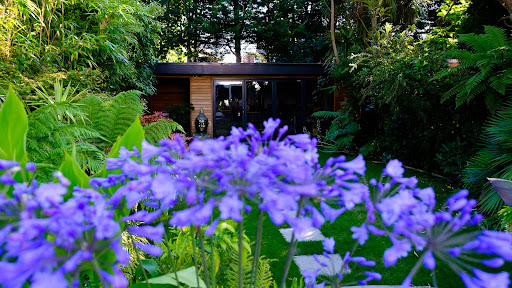
2. Connect with nature: Spending time outdoors has been proven to improve mental wellbeing, and a garden room can make this possible whatever the weather. The calming atmosphere you experience in nature helps to reduce stress and improve mood, even to the extent that spending just 40 seconds looking at nature can ease your brain into a relaxed state and boost your sense of wellbeing. Consider using your breaks to do some gardening for maximum effect, which you can then enjoy as your calming view.

Photo by LinkedIn Sales Solutions – Unsplash
3. Consider changing your working pattern: We all have different needs when it comes to how we create our best work. Where possible, consider changing your work schedule or routine to better suit your mental health and wellbeing, as this can enable you to feel happier and more productive. Would you feel more focused if you started work earlier in the day and finished before 5pm? Or perhaps a later start time suits your sleep routine better, with flexibility to finish work after 5pm? Look at what might give you more time to yourself and create a greater sense of balance in your life.
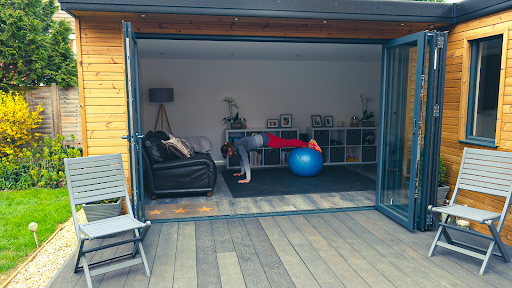
4. Keep active: Staying active is one of the most recommended ways to take stock of your mental health and wellbeing. However, this can be difficult when your job requires you to sit at a desk, or remain in the same position for a long time. So, consider how you can easily bring exercise into your working day. Why not ‘zone’ your garden room if you have one, creating an office space and workout area in one – you can enjoy the benefits of a quick yoga session or lunchtime workout and even practice yoga at your desk on particularly busy days. Also, wherever you currently work remotely, you could set a timer to remind yourself to take regular breaks throughout the day (see my next tip). You could go for a walk, a cycle around the block, or even enjoy a spot of gardening!
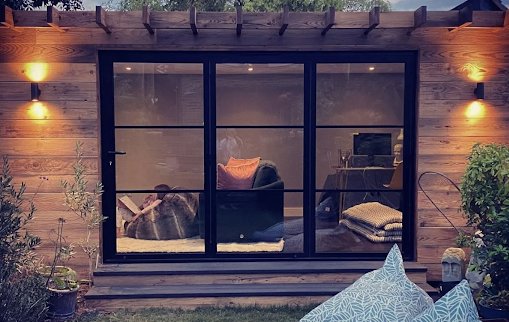
5. Take regular breaks: Whether you’re feeling stressed or not, it’s important to take regular breaks away from your desk and screen, and you can help yourself by adding reminders in your phone or email calendar. While it can be difficult to take small chunks of time away from your desk if you are particularly busy, even a few minutes of time out will do wonders for your mental wellbeing, as well as your productivity. Research has shown that anywhere between 5 and 15 minutes can help you come back to your work with higher levels of productivity, creativity and focus. It could be as simple as taking a short walk in the afternoon, reading a book that’s uplifting (in another room of your house or in your garden room), or doing a few stretches to shift your physical state.

Photo by Priscilla Du Preez – Unsplash
6. Check in with others: Making a connection with a friend or loved one is one of the easiest and most accessible things you can do to look after your wellbeing. If you’re working from your garden room, make time to grab a coffee or eat lunch with someone in the house, or give a friend or family member a call on your lunch break. It can even be as simple as sending a message to a friend who you haven’t spoken to in a while. Evidence shows that these connections make the world of difference to our mental wellbeing by increasing feelings of happiness and self-worth.

7. Separate your work and home life: This is where a garden room office can really help. A study by psychogeographer and neuroscientist Colin Ellard (author of Places of the Heart: The Psychogeography of Everyday Life) saw a 25% increase in people’s work focus while working from a garden office compared to a home office. The study also reported increased happiness, contentment and sense of control, with participants feeling garden offices provide an “absorbing and interesting environment”. If a garden room is something you aspire to invest in one day, then in the meantime you can designate a room or space to work in your home, ideally with lots of natural light and decorate it in a way that brings happiness and comfort. When you finish work for the day and switch off your computer, leave that space and fully embrace the rest of your home to appreciate that separation.

Photo by Eli DeFaria – Unsplash
8. Introduce self-care practices and relaxation techniques into your routine: Engaging in self-care practices and relaxation techniques are a powerful way to nurture wellbeing and can be easily done throughout your working day. Self-care doesn’t have to be bound to activities like taking a bubble bath, or reading your favourite book – it can be as quick and simple as taking time to acknowledge your accomplishments, creating boundaries at work, recalling a previous holiday/peaceful time, or visiting a favourite café for lunch. These small acts of self-care can help to boost your mood and nurture a healthy state of mind.
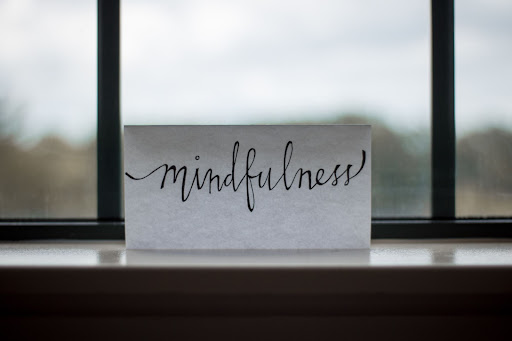
Photo by Lesly Juarez – Unsplash
9. Practise mindfulness at work: Mindfulness is the process of focussing your attention on experiences happening in the present moment. Put simply, it’s about being present, aware, and observant, without any distractions. If you’re short on time, you can bring mindfulness to small tasks. This could be while you’re making a hot drink, washing your hands or eating a mid-morning snack. While you’re engaging in these everyday tasks, take a minute to slow down, breathe deeply and pay attention to the movement, rather than completing them on auto-pilot.

Photo by Adrian Korte – Unsplash
10. Listen to music: Neurological researchers have found that listening to music promotes health and well-being. Its distinct calming effect on both the mind and body can be hugely beneficial, even if you only have a few minutes to spare – in particular, listening to tracks that remind you of positive moments, or induce happy feelings. Why not create your own happiness playlist you can tune into at any time?
The Benefits of Garden Rooms
Whether you currently own a garden room, or are looking to invest in one in the future, there are many fascinating benefits to be aware of.
As well as the pros of spending time ‘outside’ in nature, Into the Garden Room’s sustainable builds are built and cladded using timber. Timber is a natural and breathable material, which was discovered in an Austrian school study to promote lower heart rates and levels of stress.
Garden rooms also benefit from plenty of natural lighting, which has wide-ranging benefits including boosting vitamin D, helping with seasonal depression, promoting better sleep and avoiding some of the downsides of fluorescent lighting.
Creating a Calm & Productive Year Ahead
It’s important to remember that looking after your mental health and wellbeing doesn’t just apply to people who are struggling with issues such as anxiety and depression. It is just as important even when you’re feeling mentally well, in order to prevent stress and burnout from escalating.
While it’s not always possible to avoid stressful situations, finding solace in what you can control can ease feelings of tension. Everyone’s mental health fluctuates, depending on circumstances in our lives, which is why it’s important to check in on how you’re feeling regularly.
You needn’t be an expert in meditation to engage in simple breathing exercises or mindfulness. However you practise wellness, as long as you’re making it a priority to check in with yourself, you’ll feel multiple benefits over time.
If you’re looking for more tips and insights on nurturing your mental health, check out my book (This is Calmer), download my working from home guide or consider signing up to Calmer’s free stress-management and burnout prevention course, The Reignite Project.
In the meantime, I hope you’ve found this article valuable and here’s to creating calm, healthy and productive home working habits and routines in 2022.
By Tania Diggory, Founder & Director of Calmer |
January 20, 2022 |
